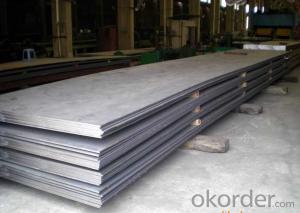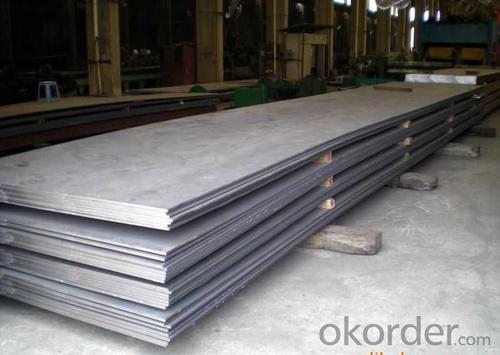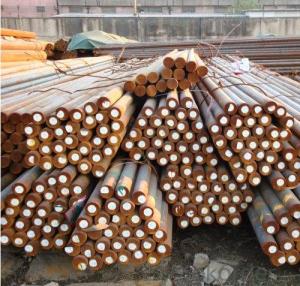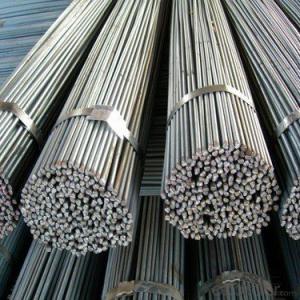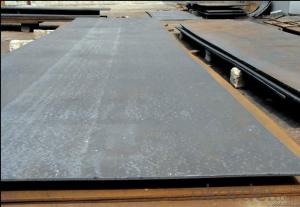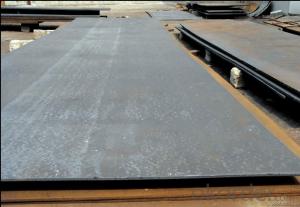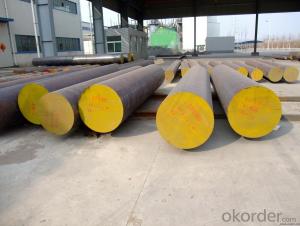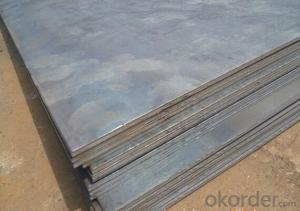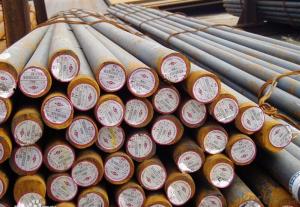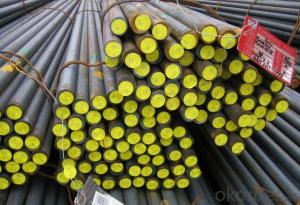Alloy Steel Cr12/1.2080/BD3/SKD1/D3 Steel Plate
- Loading Port:
- China main port
- Payment Terms:
- TT OR LC
- Min Order Qty:
- 25 m.t.
- Supply Capability:
- 10000 m.t./month
OKorder Service Pledge
OKorder Financial Service
You Might Also Like
Specification
The details of our Steel
1. Produce Standard: as the GB, AISI, ASTM, SAE, EN, BS, DIN, JIS Industry Standard
2. Produce processes: Smelt Iron -EAF smelt Billet - ESR smelt Billet -Hot rolled or forged get the steel round bar and plate
3. Heat treatment:
Normalized / Annealed / Quenched+Tempered
4. Quality assurance:
All order we can received Third party inspection, You can let SGS, BV,.. and others test company test and inspect our products before Goods shipping.
Product information
Chemical Composition(%)
C | Si | Mn | P | S | Cr |
2.00-2.30 | ≤0.40 | ≤0.40 | ≤0.030 | ≤0.030 | 11.50-13.00 |
Available Size
Rolled flat steel | 12-90mm×205-610mm×L |
Forged flat steel | 100-300mm×400-600mm×L |
Heat Treatment
Item | Temperature ℃ | Hardness |
Anneal | 750-760 | ≤255HB |
Quenching | 950-980 | 59-63HRC |
Tempering | 180-350 | 58-62HRC |
Characterstics
1.High hardening ability and abrasion resistance | ||||||||
2.Less quenching deformation | ||||||||
3.High toughness and more homogeneous carbide distribution |
Applications: Suitable for various complicated cold working dies with high precision and long lifetime,such as punching dies,cold extrusion dies,thread rolling dies,screw plates,cold extrusion dies,and precise measuring devices
Product show

Workshop show

- Q: How does special steel contribute to improving product safety in high-risk industries?
- Special steel plays a crucial role in improving product safety in high-risk industries due to its unique properties and characteristics. Its exceptional strength, durability, and resistance to corrosion make it highly reliable and less prone to failure under extreme conditions. By using special steel in the manufacturing of critical components and structures, such as in aerospace, automotive, and oil and gas industries, it ensures enhanced safety and prevents potential accidents or catastrophic failures. Additionally, the strict quality control and certifications associated with special steel guarantee that it meets the industry's stringent safety standards, providing peace of mind to both manufacturers and end-users.
- Q: What are the different types of alloy steel?
- There are several different types of alloy steel, including stainless steel, tool steel, high-strength low-alloy steel, and maraging steel. Each type has its own unique composition and properties, making them suitable for various applications in industries such as construction, automotive, and aerospace.
- Q: What are the different forging grades of special steel?
- There are several different forging grades of special steel, each with its own unique characteristics and applications. Some of the most commonly used forging grades include: 1. Carbon Steel: Carbon steel is a popular choice for forging due to its high strength and durability. It contains various amounts of carbon, which determine its hardness and toughness. Carbon steel forgings are commonly used in automotive parts, construction equipment, and machinery. 2. Alloy Steel: Alloy steel is made by adding various alloying elements to carbon steel, such as manganese, chromium, nickel, or molybdenum. This enhances its strength, corrosion resistance, and wear resistance. Alloy steel forgings are widely used in aerospace, defense, oil and gas, and power generation industries. 3. Stainless Steel: Stainless steel is a corrosion-resistant steel alloy that contains a minimum of 10.5% chromium. It is highly resistant to rust and staining, making it suitable for applications in harsh environments or where hygiene is critical. Stainless steel forgings are commonly used in the food processing, chemical, and medical industries. 4. Tool Steel: Tool steel is specifically designed for use in cutting tools, molds, and dies. It has high hardness, wear resistance, and toughness, allowing it to withstand high temperatures and heavy loads. Tool steel forgings are used in the manufacturing of drills, saw blades, punches, and various precision tools. 5. High-Speed Steel: High-speed steel is a type of tool steel that is capable of cutting at high speeds without losing its hardness. It contains additional elements like tungsten, molybdenum, or vanadium, which improve its heat resistance and wear resistance. High-speed steel forgings are used in the production of cutting tools, drills, and milling cutters. 6. Maraging Steel: Maraging steel is a low-carbon, high-nickel steel alloy known for its exceptional strength and toughness. It is heat-treated to achieve high tensile strength while maintaining good ductility. Maraging steel forgings are commonly used in aerospace, defense, and missile systems. These are just a few examples of the different forging grades of special steel available in the market. Each grade offers specific properties suited to different applications, ensuring that the right material can be selected for the desired performance and durability requirements.
- Q: What are the main characteristics of spring steel?
- Spring steel, which is specifically designed to possess excellent elasticity and resilience, is a type of high-carbon steel. Its notable property is that it can return to its original shape after being bent or deformed, making it ideal for applications that require repeated and controlled deflection. The key characteristics of spring steel include the following: 1. High Yield Strength: Spring steel demonstrates high yield strength, meaning it can withstand significant stress before permanent deformation occurs. This enables it to bear heavy loads and resist bending or breaking under pressure. 2. Exceptional Elasticity: An important feature of spring steel is its remarkable elasticity. It can be flexed, twisted, or stretched without permanent deformation, and once the force is released, it reverts back to its original shape. This property is crucial for applications that necessitate constant and repetitive motion. 3. Superior Fatigue Resistance: Spring steel has exceptional resistance to fatigue, allowing it to endure countless cycles of stress without failure. This characteristic is crucial for products subjected to continuous and repetitive loads, such as springs in automotive suspensions or industrial machinery. 4. Good Hardness and Wear Resistance: Spring steel is typically hardened to enhance its resistance to wear. This enables it to withstand abrasion and deformation under harsh conditions, making it suitable for applications involving friction or impact, such as cutting tools or automotive components. 5. Excellent Formability: Spring steel can be easily formed into various shapes and sizes, making it highly versatile for different applications. It can be cold-drawn, rolled, or heat-treated to achieve specific mechanical properties, allowing manufacturers to customize its characteristics based on their specific requirements. In conclusion, spring steel possesses high yield strength, exceptional elasticity, superior fatigue resistance, good hardness and wear resistance, and excellent formability. These qualities make it an essential material in various industries, including automotive, aerospace, construction, and manufacturing.
- Q: How does surface treatment affect the performance of special steel?
- Surface treatment plays a crucial role in enhancing the performance of special steel. The primary purpose of surface treatment is to alter the surface properties of the steel to meet specific requirements and improve its performance in various applications. One significant effect of surface treatment on special steel is increased corrosion resistance. By applying coatings or treatments such as galvanization, electroplating, or passivation, the steel's surface becomes more resistant to the damaging effects of moisture, chemicals, and other corrosive agents. This is particularly important in industries like construction, automotive, or marine, where steel is exposed to harsh environments. Surface treatment also affects the wear resistance of special steel. Through processes like carburizing, nitriding, or boriding, a thin layer of hard and wear-resistant material is formed on the steel's surface. This significantly improves its ability to withstand friction, abrasion, and mechanical stress, making it suitable for applications involving heavy machinery, cutting tools, or bearings. Furthermore, surface treatment can enhance the aesthetic appeal of special steel. Techniques like polishing, grinding, or coating can improve the steel's appearance, making it more visually appealing for architectural or decorative purposes. Another important aspect affected by surface treatment is the steel's adhesion properties. By modifying the surface through processes such as shot peening or surface etching, the steel becomes more receptive to adhesives, paints, or coatings. This improves the bond strength between the steel and other materials, making it suitable for applications where adhesion is critical, such as in aerospace or electronics industries. In summary, surface treatment significantly impacts the performance of special steel. It enhances corrosion resistance, wear resistance, adhesion properties, and aesthetic appeal. By selecting the appropriate surface treatment techniques, manufacturers can tailor the steel's surface properties to meet specific application requirements, thereby maximizing its performance and extending its lifespan.
- Q: Can special steel be used in the automotive industry?
- Yes, special steel can be used in the automotive industry. It is often utilized in various components and parts of vehicles due to its high strength, durability, and resistance to wear and corrosion. Special steel alloys can enhance the performance, safety, and efficiency of automobiles, making it a suitable choice for the automotive industry.
- Q: What is the significance of tensile strength in special steel?
- Tensile strength is of great significance in special steel because it determines the steel's ability to withstand stretching or pulling forces without breaking or deforming. This property is crucial in various industries, especially in manufacturing and construction, where high tensile strength is required for structural integrity and safety. Special steel with superior tensile strength can withstand heavy loads, resist impacts, and provide durability, making it highly sought after in applications such as building infrastructure, automotive manufacturing, and aerospace engineering.
- Q: How does special steel contribute to the infrastructure sector?
- The construction and maintenance of various structures in the infrastructure sector heavily rely on special steel. This type of steel is widely utilized due to its outstanding strength, durability, and resistance to wear and tear. A significant area where special steel plays a crucial role is in bridge construction. Bridges are constantly exposed to heavy loads, extreme weather conditions, and continuous vibrations, making the use of high-quality steel essential. Special steel, such as high-strength low-alloy (HSLA) steel or weathering steel, provides the required strength and corrosion resistance to ensure the bridges' longevity and safety. Furthermore, special steel is extensively employed in the construction of high-rise buildings and skyscrapers. These structures demand steel that can withstand tremendous loads and offer stability. Special steel grades, including high-strength steel or structural steel, provide the necessary strength-to-weight ratio, allowing architects and engineers to design taller and more robust structures. Apart from its application in construction, special steel also contributes to the infrastructure sector through its usage in manufacturing equipment and machinery for construction and maintenance activities. It is utilized in the production of heavy machinery, cranes, excavators, and other construction equipment, providing the required strength and reliability to withstand the sector's demanding conditions. Additionally, special steel plays a vital role in the development of transportation infrastructure. It is employed in the manufacturing of railway tracks, ensuring their durability and resistance to wear caused by the continuous movement of trains. Moreover, it is used in the production of reinforcing bars for concrete in road construction, offering the necessary strength and stability to withstand heavy traffic loads. In conclusion, special steel's exceptional properties make it an indispensable material in the infrastructure sector. Its strength, durability, and resistance to corrosion significantly contribute to the construction and maintenance of various structures, guaranteeing their longevity, safety, and reliability.
- Q: How does special steel perform in hot forging processes?
- Special steel is specifically designed to withstand high temperatures and perform well in hot forging processes. When exposed to extreme heat, special steel maintains its strength and hardness, making it ideal for use in hot forging applications. One of the main advantages of special steel in hot forging is its excellent heat resistance. It can withstand high temperatures without losing its structural integrity, ensuring that it maintains its desired properties throughout the forging process. This allows for the production of forged components with consistent quality and dimensional accuracy. Furthermore, special steel exhibits good thermal conductivity, which helps to distribute heat evenly during the forging process. This enables efficient heating and reduces the risk of localized overheating or cold spots. The even distribution of heat also contributes to uniform grain structure, which enhances the overall strength and mechanical properties of the forged parts. In addition, special steel possesses excellent wear resistance and toughness, even at elevated temperatures. This ensures that the steel can withstand the significant forces and pressures involved in the hot forging process without easily deforming or failing. The combination of high strength, wear resistance, and toughness allows for the production of forged components that can withstand heavy loads and harsh operating conditions. Moreover, special steel can be easily machined and formed, allowing for intricate designs and complex shapes to be forged. This versatility makes it suitable for a wide range of hot forging applications, including automotive parts, industrial machinery components, and aerospace components. In summary, special steel performs exceptionally well in hot forging processes. Its heat resistance, thermal conductivity, wear resistance, toughness, and machinability make it an ideal material choice for producing high-quality, durable, and complex forged components.
- Q: What are the challenges in heat treating special steel?
- Some of the challenges in heat treating special steel include achieving uniform heating and cooling rates, controlling distortion and warping, managing the formation of unwanted phases or microstructures, maintaining precise temperature control, and ensuring consistent and repeatable results. Additionally, special steels may have specific alloying elements or compositions that require specialized heat treatment processes or equipment, further adding to the complexity and challenges in heat treating these materials.
Send your message to us
Alloy Steel Cr12/1.2080/BD3/SKD1/D3 Steel Plate
- Loading Port:
- China main port
- Payment Terms:
- TT OR LC
- Min Order Qty:
- 25 m.t.
- Supply Capability:
- 10000 m.t./month
OKorder Service Pledge
OKorder Financial Service
Similar products
Hot products
Hot Searches
Related keywords
